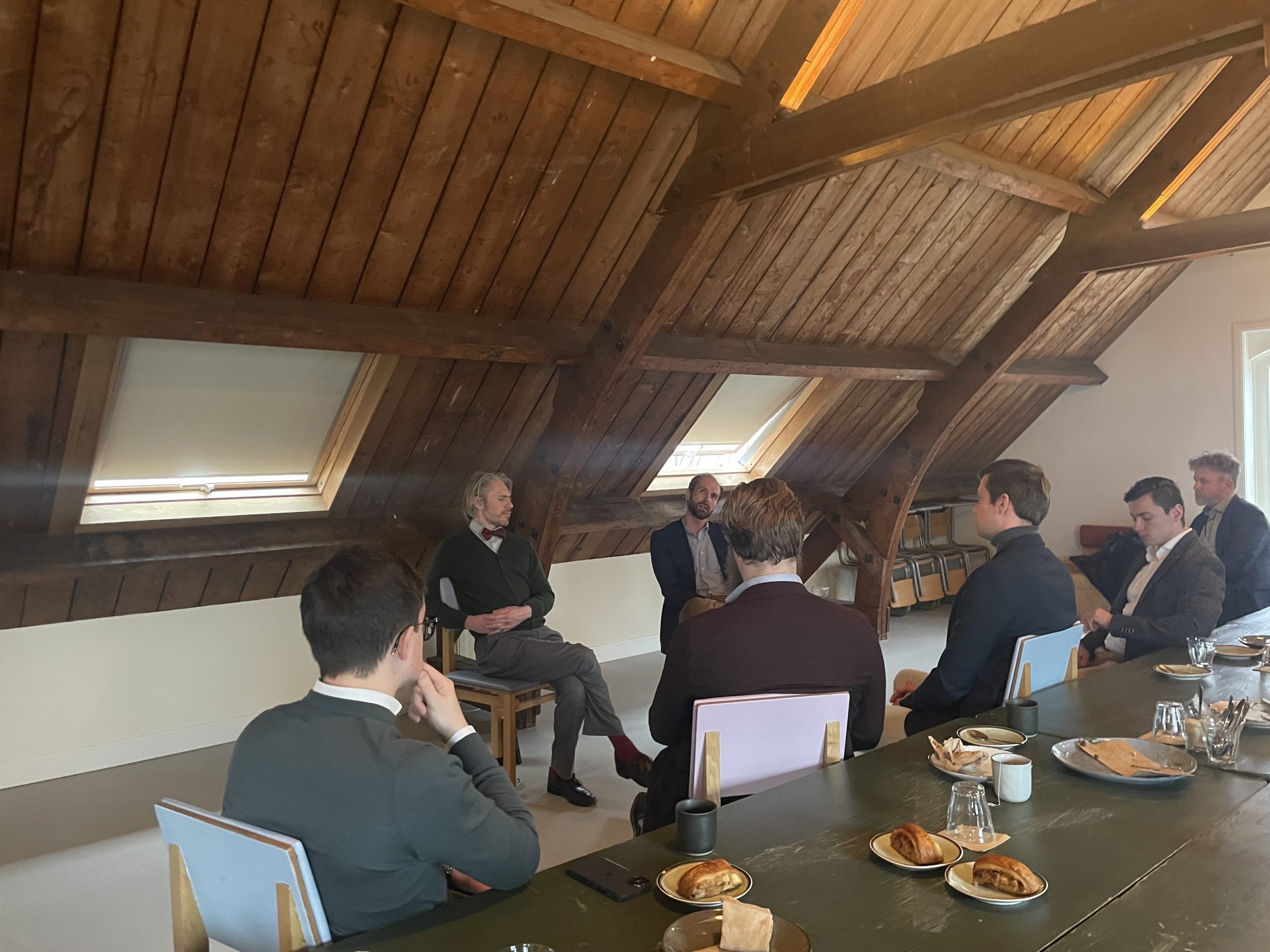On Saturday afternoon January 15 our Winter Lunch took place. We spoke with Pablo Lamberti about his book A Combative Life. Lamberti is a philosopher and Ph.D. candidate at the University of Amsterdam. The conversation was led by Dr. Eric Hendriks-Kim.
What did we discuss?
Lamberti’s central thesis is that the current way of doing philosophy has become detached from practical implications for everyday life. Thus, contemporary philosophy is mainly characterized by a theoretical approach to texts and ideas. For Lamberti, however, philosophy presupposes a continuous effort in the search for wisdom and the good life. It therefore always has an existential dimension. The cardinal virtues of prudence, moderation, and courage in particular fit a continuous effort in the search for the good life, and this influence is mutual. Lamberti calls this ‘combativeness,’ which amounts to a fighting attitude to life, and he believes that it has been largely forgotten in our time.
Ancient philosophers from both the Western and Eastern traditions did have this insight, however. In Western philosophy Socrates is the shining example. Not only did he give a literal meaning to combativeness by serving in the army, he also sought the right attitude to life until the very end by calmly accepting the poison cup. This implied a fight with his desires. In the Eastern tradition, Zen philosophy also took the cardinal virtues as its starting point. In doing so, it influenced the elite of the samurai. Thus, for a Zen monk and a samurai alike, fighting against cravings and maintaining a daily rhythm are comparable. We can still learn from these insights to this day.
What may we conclude?
In light of recent times the lessons of the book could be interpreted as resistance to contemporary victim culture or the tendency to make life as easy as possible for ourselves. Nonetheless, the argument is intended as a timeless inspiration for everyone to explore a good attitude to life themselves. After all, the very nature of philosophy requires that we continue to reflect on this.



